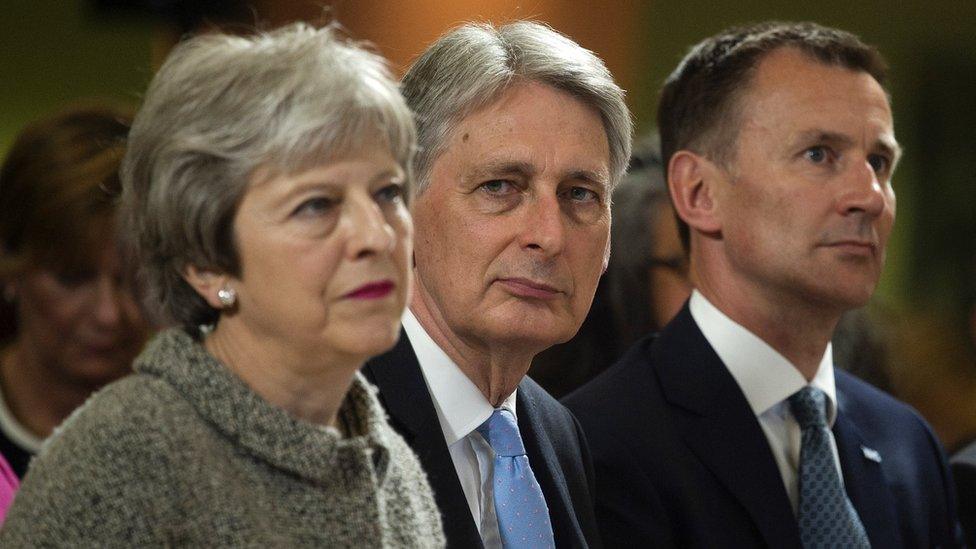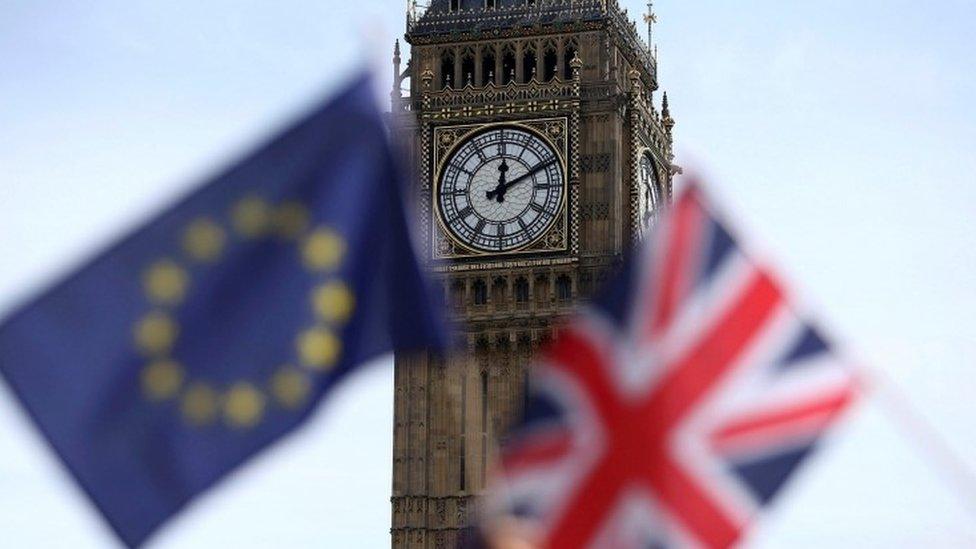'No magic money tree'
- Published
Theresa May was asked how the NHS cash boost would be funded
"There is no magic money tree." That's what the prime minister used to say.
She hasn't suddenly started believing that it exists in the depths of some forest somewhere, let alone in the well-manicured back garden of Number 10.
But when she used to say that, what Theresa May meant was that the Tories did not want to raise taxes or borrow more to pay for the NHS.
She would always remind you that the overall amount of money going in was increasing - but as is well-documented, the demands on the health service have been outpacing the resources available.
What's happened is that after many months of argument - remember the cabinet discussing tax rises for health much earlier this year and the ongoing desire of Brexiteers in government to find more cash for the NHS (more of that in a minute) - the prime minister has been convinced by the health secretary and others that the strain on the health service is so acute that there simply is no choice.
Jeremy Hunt has been remarkably open about this in recent weeks, and explicitly so today. Theresa May has also made it plain that tax rises are on the table.
But what she won't do yet is tell us who will pay, or even rule out any particular taxes going up, down or being frozen to find the money.
Be clear, the political decision to find the money has been made. It is even more political to decide from where. And this moment is not just about the NHS, it's about the era when the Tories' priority was paying down the deficit above all else coming to an end.
Opposition politicians are rightly pushing for more detail. But this political shift is also awkward for Labour, as the amount promised is more than Labour had proposed during the election - advocating tax rises themselves, it's not clear where else the party can go.
It is also the moment when Theresa May seems rather boldly to be willing to try to pull off a rhetorical accounting trick. She repeated her suggestion today that the money for the NHS will come, in part, from the so called "Brexit dividend".
£350m row
That is a matter of political presentation, not reality. Yes, after we leave the European Union and complete the transition period (leaving the departure lounge) it is true that we will no longer pay what's basically a membership subscription of £9bn a year.
But what Number 10 and especially the Treasury know very well is that as things stand official forecasts suggest that the economy, the overall amount of cash available for the government to spend, will be smaller than if we had stayed in.
In the most simple terms, Whitehall number-crunchers predict we will lose more cash wise than we will gain. Now, economic forecasts are often and thoroughly shown to be wrong. But right now, to suggest somehow that Brexit will partly pay for the NHS is at best extremely uncertain, at worst, downright misleading.

Remember this though. The Vote Leave campaign repeatedly used a real figure of £350m that they knew gave only part of the picture about the costs of leaving the EU.
That drove the Remain side, and plenty of voters, crazy - and there is still anger about it now. But they knew also that every time the other side complained about it, their claims about the NHS were heard by more people.
Is Theresa May doing the same? Whether it is designed to cause controversy, or just give her Brexiteer ministers something rhetorical to applaud, she is certainly taking flak. It is one thing for a campaign group to put a pretty slippery gloss on statistics, and that caused enough outrage.
It's quite another for the whole machinery of government to do the same.
- Published22 August 2018

- Published30 December 2020

